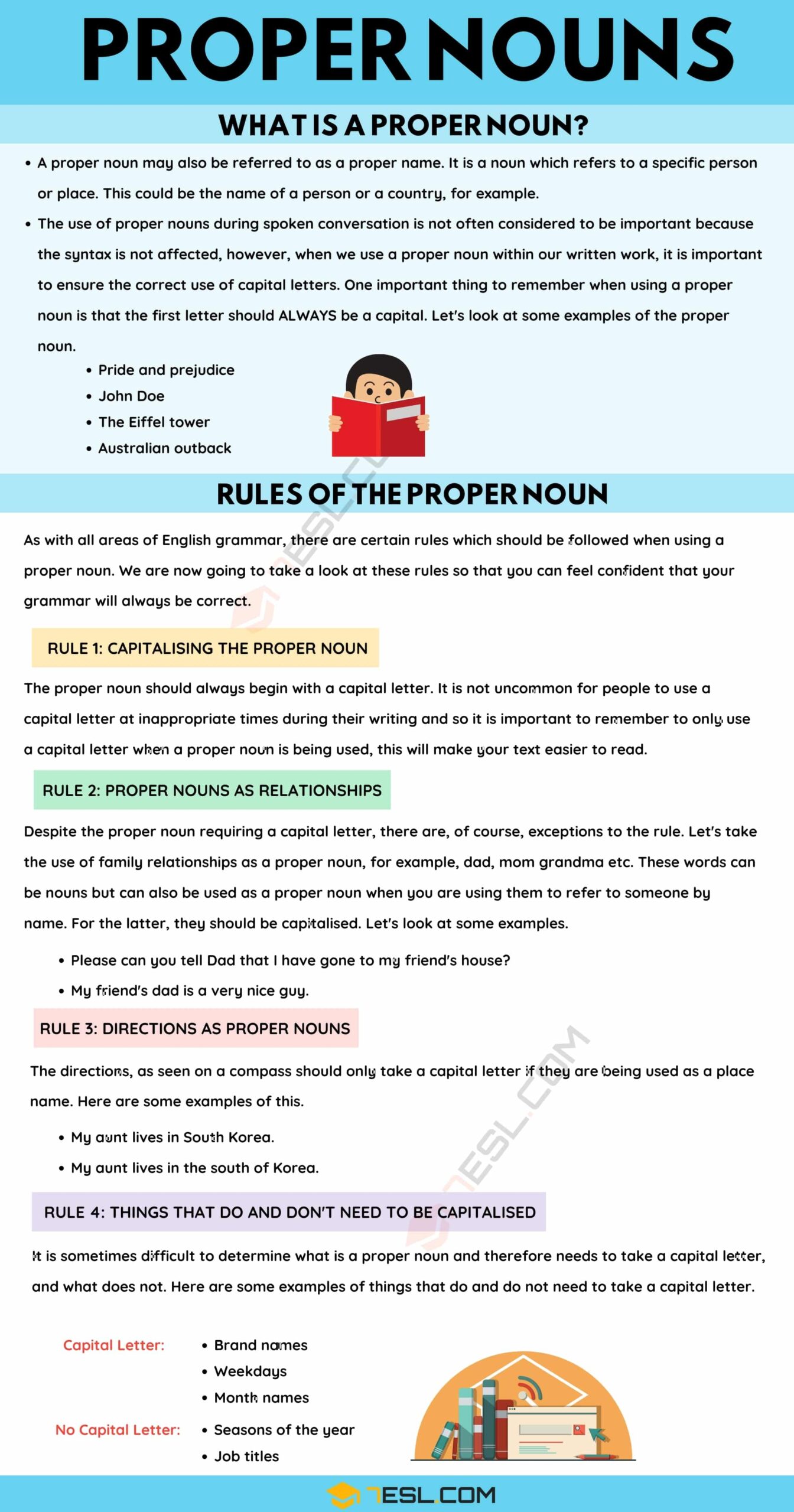Proper nouns are a specific type of noun that are used to refer to unique entities, such as people, places, organizations, or things. They are always capitalized, regardless of where they appear in a sentence. Proper nouns help to identify and distinguish specific individuals or items from others in a general category.
Proper nouns play an important role in language as they add clarity and specificity to communication. By using proper nouns, we can clearly identify who or what we are talking about, making our language more precise and effective.
Proper Nouns Definition and Examples
A proper noun is a noun that refers to a specific person, place, thing, or idea and is capitalized. Examples of proper nouns include names of individuals (e.g. John, Mary), specific locations (e.g. New York City, Grand Canyon), organizations (e.g. Microsoft, United Nations), and titles (e.g. President, Queen).
Proper nouns are used to identify unique entities and are not preceded by an article (such as “a” or “the”). They are always capitalized, even when they appear in the middle of a sentence. For example, “I visited the Eiffel Tower in Paris.” In this sentence, “Eiffel Tower” and “Paris” are both proper nouns and are capitalized to indicate their specificity.
Proper nouns can also include brand names (e.g. Coca-Cola, Nike), days of the week (e.g. Monday, Saturday), months (e.g. January, July), and holidays (e.g. Christmas, Thanksgiving). These names are unique and specific, making them proper nouns that are capitalized in writing.
It is important to use proper nouns correctly in writing to ensure clarity and accuracy. By capitalizing proper nouns, we give them the emphasis they deserve and help readers easily identify the specific entities being referred to in a sentence.
In conclusion, proper nouns are a crucial part of language that help us identify and distinguish specific individuals, places, organizations, and things. By following the rules of capitalization and using proper nouns accurately, we can communicate more effectively and precisely in both spoken and written language.
